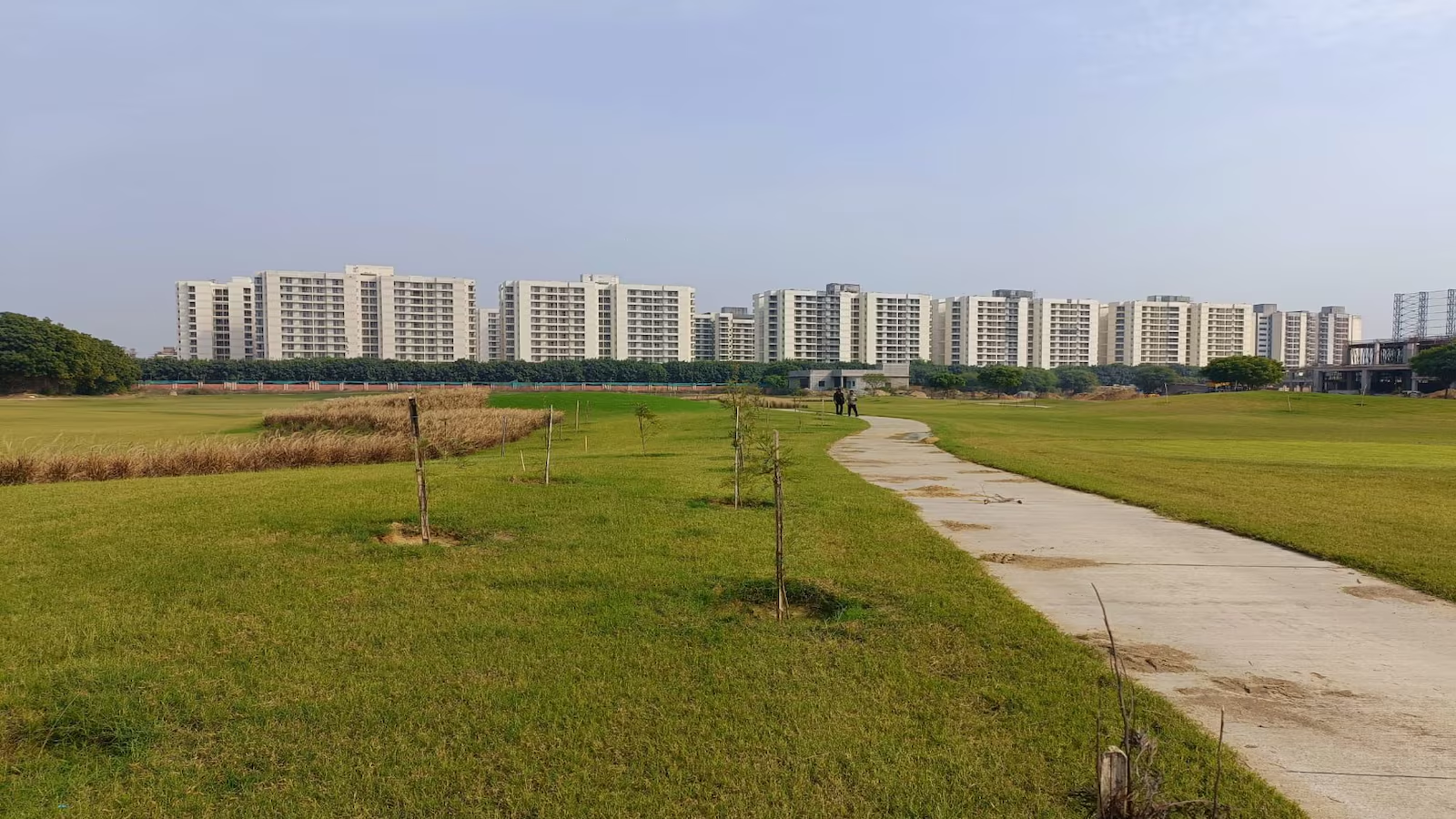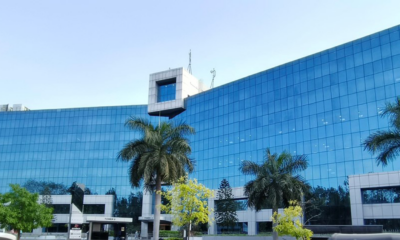Report
Office sector recorded second-highest-ever leasing activity in 2022: CBRE report


January 05, 2023: CBRE South Asia Pvt. Ltd, on Thursday published the findings of its latest office report, ‘CBRE India Office Figures Q4 2022’. As per the report findings, the office sector in India witnessed gross absorption of 56.6 mn. sq. ft. during 2022, registering a growth of 40% (Y-o-Y), marking the second-highest leasing activity ever after it touched the peak in 2019 with 65 mn. sq. ft. Supply marginally increased from 49.7 million sq. ft. in 2021 to touch 50.6 million sq. ft. in 2022. As per the report, Bangalore, Delhi-NCR, Hyderabad and Mumbai accounted for nearly 75% of the yearly leasing activity.
In a first, domestic firms overtook American firms in annual leasing, accounting for nearly half of the leasing share in 2022, mainly led by flexible space operators, technology corporates and BFSI firms. Bangalore, Delhi-NCR and Mumbai were the cities dominating the absorption by domestic firms. A similar trend was witnessed in the Oct-Dec quarter, with domestic firms accounting for a share of 51% in space take-up followed by American (37%), EMEA (8%) and APAC (4%) firms.
On an annual basis, technology corporates drove leasing with a share of 29%, followed by flexible space operators (14%), engineering & manufacturing companies (13%), BFSI firms (13%), and research, consulting & analytics organizations (7%). The report points out that small- (less than 10,000 sq. ft.) to medium-sized (10,000 – 50,000 sq. ft.) transactions dominated leasing in 2022 with a share of 85%, similar to the trends observed in 2021. The share of large-sized deals (greater than 100,000 sq. ft.) in 2022 remained at 7%. Bangalore followed by Delhi-NCR and Pune dominated large-sized deal closures in 2022, while a few such deals were also reported in Hyderabad, Mumbai, Chennai, and Ahmedabad.
Leasing during the Oct-Dec quarter was driven by technology corporates with a share of 32%, followed by flexible space operators (11%), engineering & manufacturing companies (10%), BFSI firms (9%), and research, consulting & analytics organizations (8%). During the quarter, an increase of 1-6% in quoted rentals was witnessed in ORR and PBD Whitefield in Bangalore and Off CBD, MPH, Ambattur and PT Road in Chennai. A marginal reduction in quoted rentals was also seen in the Extended IT Corridor in Hyderabad due to supply pressures.


Anshuman Magazine, Chairman & CEO – India, South-East Asia, Middle East & Africa, CBRE, said, “With a sustained recovery in leasing, moderating vacancy levels and persistent demand for investment-grade assets, the rental recovery continued across cities throughout 2022.
With the relaxation of COVID-19 restrictions, the release of pent-up demand, and a gradual acceleration of return-to-office (RTO) plans by occupiers propelled leasing momentum. In line with the trends witnessed in the past, a strong supply pipeline and continued occupier interest in investment-grade buildings by leading developers and institutional owners in core locations is likely to lead to an increase in development completions in 2023. With a few challenges emerging across developed economies, the full impact of these risks on global corporates’ leasing decisions is yet undetermined. Amidst this, as India remains an attractive, cost-effective destination with a skilled talent pool, firms will look upto India to optimise their operations and absorption levels could still normalize to levels lower than the peak witnessed in 2022.”


Ram Chandnani, Managing Director, Advisory & Transactions Services, CBRE India, said, “The technology sector would continue to drive leasing activity in 2023. The share of leasing by sectors such as BFSI, flexible spaces, engineering & manufacturing is also expected to increase annually. Global corporates would remain committed to India, attracted by its cost and scale advantages and diversity of talent pool. In line with the trends witnessed in 2022, domestic firms’ share of leasing would also become a critical determinant of the overall office market performance in 2023”.
Outlook and other observations
Post-pandemic resurgence in leasing activity to normalize in 2023
- Amongst major cities, Bangalore, Delhi-NCR and Hyderabad would remain the biggest demand drivers, while sustained leasing activity is also expected in Mumbai, Chennai, Pune and Kolkata. Select tier-II and tier-III markets would also continue to attract attention from corporates preferring to locate closer to their talent pool.
- Global corporates would remain committed to India, attracted by its cost and scale advantages and diversity of talent pool. However, in line with the trends witnessed in 2022, domestic firms’ share of leasing would also become a critical determinant of the overall office market performance in 2023.
Grade-A development completions to continue to grow on an annual basis
- A strong supply pipeline and continued occupier interest in investment-grade buildings by leading developers and institutional owners in core locations is expected to lead to an increase in development completions in 2023. Bangalore, Hyderabad and Delhi-NCR are anticipated to continue to dominate supply in the coming year.
- Demand outstripped supply in 2022, causing vacancy rates to marginally dip across some cities by the end of the year. This trend could potentially reverse in 2023 and, as a result, vacancy rates are anticipated to be largely range-bound.
Holistic hybrid working and location strategies to be key to attracting and retaining talent
- In order to formulate relevant RTO and hybrid working policies, occupiers may adopt strategies such as identifying new work styles, articulating clear RTO goals and gauging employees’ preferences through surveys. Another factor in formulating these policies would be employees’ commute patterns as a gap in the expected and actual commute times of survey respondents was revealed in our recently released Asia Pacific Live-Work-Shop Report 2022.
- Therefore, occupiers may consider strategies such as studying employees’ commute patterns, prioritizing accessibility in site and asset selection, and leasing flexible spaces in suburban locations.
Employees’ desire for flexibility to shape the workplace experience
- Going forward, employees are more likely to strike a balance by preferring hybrid arrangements instead of fully remote working for better collaboration, connectedness, learning and career development opportunities. Therefore, we expect an increased emphasis on workplace quality and experience to drive engagement.
- Occupiers are thus recommended to assess the appeal of their workplaces and make the necessary adjustments to satisfy the needs of hybrid workers.
- Key aspects in enhancing the workplace experience would include technological enablement, health & wellness and sustainability features, supporting services, functional space design to support new work styles, and company culture and brand immersion strategies.
-



 News3 weeks ago
News3 weeks agoKW Delhi 6 Mall Onboards New Brands
-



 News4 weeks ago
News4 weeks agoManasum Senior Living Launches IKIGAI GOA, A Senior Living Community in North Goa, in collaboration with Prescon Homes
-



 News2 weeks ago
News2 weeks agoGodrej Properties Sells Rs 3k cr+ Homes of Godrej Zenith, Gurugram, within 3 days
-



 News3 weeks ago
News3 weeks agoCommercial Realty Gets Tech Savvy: Fast Construction, Enhanced Convenience
-



 News4 weeks ago
News4 weeks agoBridging India Divide: Top 5 Tier- 2 Cities to Focus On
-



 News4 weeks ago
News4 weeks agoMultipoint Connection – A Definite Boon
-



 News3 weeks ago
News3 weeks agoRBI’s Status Quo on Key Policy Rates to Help Maintain the Real Estate Growth Momentum, Say Industry Stalwarts
-



 News1 week ago
News1 week agoOlive Announces Dhruv Kalro as Co-Founder

















